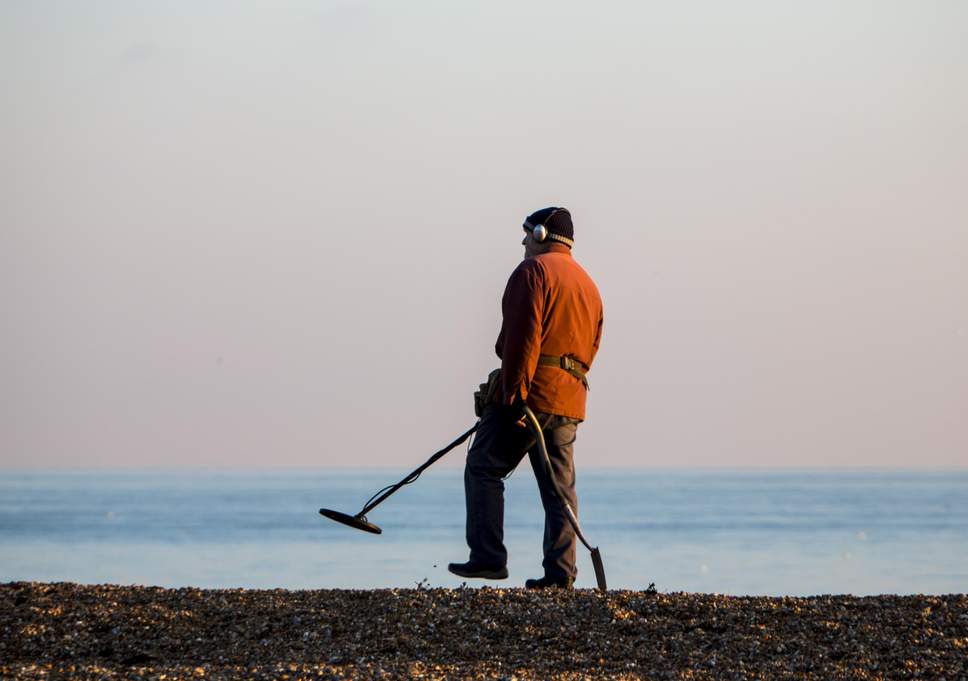Metal detecting: how much can you make?
While some do it for the love of the craft others have made lucrative gains

A free daily email with the biggest news stories of the day – and the best features from TheWeek.com
You are now subscribed
Your newsletter sign-up was successful
The hobby of metal detecting hasn’t always had the best reputation, thanks in part to shows like The Detectorists that depict enthusiasts as social misfits.
But joining detectorists to uncover hidden treasure “could mean potentially profiting from long summer days”, says The Guardian.
Here’s what you need to know:
The Week
Escape your echo chamber. Get the facts behind the news, plus analysis from multiple perspectives.

Sign up for The Week's Free Newsletters
From our morning news briefing to a weekly Good News Newsletter, get the best of The Week delivered directly to your inbox.
From our morning news briefing to a weekly Good News Newsletter, get the best of The Week delivered directly to your inbox.
Can I start metal detecting anywhere?
Not quite. “What you can’t just do is head off into the countryside and start swinging your detector around. All land is owned by someone, and to detect on it you need permission,” says The Independent.
“There’s only one way to do that, and that’s go knocking on doors and asking,” says Steve Critchley, chairman of the National Council for Metal Detecting. But even then, it’s not so simple. That farmer’s field “might already be the turf of one or more detectorists; they’re unlikely to want the competition, and the farmer won’t want more people than he’s happy with turning up on to his land at the weekends”, adds the paper.
Where’s a good place to start metal detecting?
A free daily email with the biggest news stories of the day – and the best features from TheWeek.com
If you're serious about unearthing something of value, research a site first. “Find out what, if anything, happened, such as battles, skirmishes, who lived there and where they could have worked to give you an idea of what might be found - and remember to gain permission to search,” says Julian Evan-Hart, co-author of Beginner's Guide to Metal Detecting.
But many enthusiasts claim that any apparently unremarkable field could quite easily be hiding a metaphorical goldmine.
“Many great finds have been in random locations, as big hoards were deliberately buried in odd places for people to go back and collect them,” says Harry Bain, editor of The Searcher, a specialist magazine for keen detectorists.
What do you do if you find something?
If you strike it lucky don't assume you can just pocket your treasure. “There are all sorts of regulations governing what you must do with significant finds; so if you do discover treasure you should report it”, says The Guardian.
Treasure hunting is governed by the Treasure Act 1996. This defines gold or silver finds older than 300 years as “treasure”. A strict process must be followed when a person finds Treasure, which involves notifying the local coroner of the treasure within 14 days.
Visit www.finds.org.uk for further details and laws covering all of the UK.
Is it lucrative?
While many do it for the love of the hobby, there have been some huge finds in the past.
One of the biggest in the UK was the Snettisham Hoard, the richest collection of Iron Age treasure ever to be found in Britain.
Archaeologists had thought there was no more to be discovered but then in 1990, “a local man searching the same fields with his metal detector uncovered another golden hoard, then valued at £26 million”, says This Is Money.
“It is understood the man accepted an undisclosed reward for the find and it was taken to the British Museum”, adds the website.